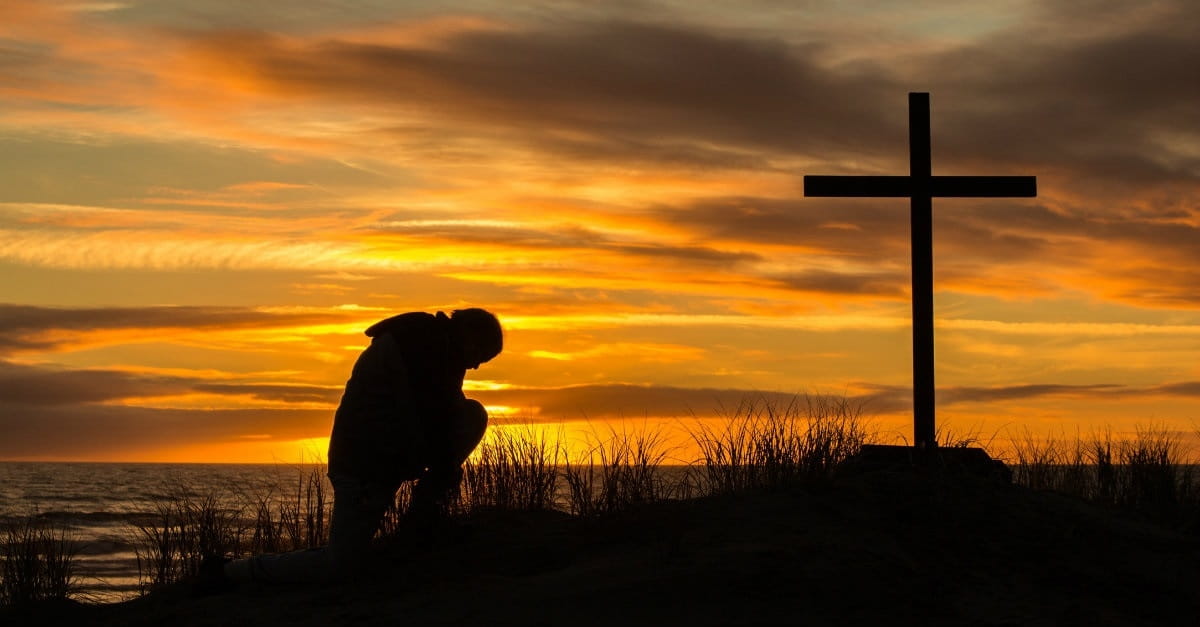What Is the Kingdom of God, and Are We Seeing It Now?
Share

If you were to do a Google search on the phrase “Kingdom of God,” it would return 714 million hits. Doing the same search on Amazon returns over 7,000 items, mostly books. While not all those hits relate to the Kingdom of God taught in the Scripture, most of them do. Clearly, much has been written about the Kingdom of God.
But just what is this Kingdom of God? This article will look at what the Bible says about it, focusing on both its present reality and its future consummation at Christ’s return.
What Is the Kingdom of God?
Wikipedia quotes R. T. France (Divine Government: God's Kingship in the Gospel of Mark) as saying “that while the concept of ‘Kingdom of God’ has an intuitive meaning to lay Christians, there is hardly any agreement among theologians about its meaning in the New Testament. Some scholars see it as a Christian lifestyle, some as a method of world evangelization, some as the rediscovery of charismatic gifts, others relate it to no present or future situation, but the world to come.” France further states “that the phrase the Kingdom of God is often interpreted in many ways to fit the theological agenda of those interpreting it.”
While there is likely an element of truth in many of these understandings of the Kingdom, I do not see that any of them fully capture what it is. The word translated as “kingdom” is the Greek word basileia. Vines Complete Expository Dictionary defines this word as “primarily an abstract noun, denoting ‘sovereignty, royal power, dominion.’” While it is often used in relation to the territory over which a sovereign reigns, it more commonly refers to the rule of the sovereign. So, in this sense, the Kingdom of God is not a place, but the rule of God over his people.
Jesus’ Proclamation of the Kingdom
It is hard to overestimate the importance of the Kingdom of God (Kingdom of Heaven in Matthew) in Jesus’ teaching. In Matthew’s gospel, Jesus is recorded as mentioning the Kingdom 49 times. Matthew 4:23 records what was probably Jesus’ ongoing activity through his 3+ years of ministry. “Jesus went throughout Galilee, teaching in their synagogues, proclaiming the good news of the kingdom, and healing every disease and sickness among the people.” He taught, proclaimed the Kingdom, and healed the people.
Most of Jesus’ parables were directed at some aspect of the Kingdom, starting with “the Kingdom of Heaven is like...” Just in Matthew we find that the Kingdom of Heaven is like:
- A man sowing seed in his field (Matthew 13:24-30)
- A mustard seed (Matthew 13:31-32)
- Yeast (Matthew 13:33)
- A treasure hidden in a field (Matthew 13:44)
- A pearl (Matthew 13:45-46)
- A net let down to catch fish (Mt 13:47-50)
- A king settling accounts (Matthew 18:23-35)
- A land owner hiring workers (Matthew 20:1-16)
- A king’s wedding banquet (Matthew 22:2-14)
- Ten virgins waiting for the bridegroom (Matthew 25:1-13)
- A man entrusting his servants with money (Matthew 25:14-30)
But is Jesus proclaiming a kingdom that is in the distant future? A kingdom that is immanent? Or a kingdom that already existed? Or is there some truth to all three positions?

Photo credit: Pexels/Akil Mazumder
The Throne of David
A discussion of the Kingdom of God would probably not be complete without at least a mention of the promise made to David concerning the rule of his line on the throne. This promise is made to David in 2 Samuel 7:16 and reinforced in Jeremiah 33:17. In Luke 1:32 Mary is told that the child she will bear, Jesus, will sit on the throne of David. The crowds that followed Jesus initially wondered if he was the promised heir of David (Matthew 12:23) and then loudly proclaimed him as such (Matthew 21:9).
The New Testament writers clearly understood Jesus to be the Son of David. In Acts 2:29-36 Peter boldly declares Jesus to be a descendant of David, the promised Messiah. And in Hebrews 1:8 the Son is proclaimed to have an eternal throne.
Current Reality of the Kingdom
Matthew began his record of Jesus ministry with Jesus preaching “Repent, for the kingdom of heaven has come near” (Matthew 4:17). The word translated “come near” can refer to nearness either in time or in place. He could be saying that the kingdom was coming soon. Or that the kingdom was close to us, something we can reach out and touch.
Matthew 16:28 points toward a kingdom that is coming soon when Jesus says “Truly I tell you, some who are standing here will not taste death before they see the Son of Man coming in his kingdom.” Jesus is pointing to an immediate future that some portion of his followers would experience, the coming of Jesus in his kingdom. That likely occurred at the cross when Jesus is lifted up and crowned.
Jesus, and the apostles, frequently point to a kingdom that currently exists. In Luke 17:20-21 Jesus is asked when the Kingdom of God would come. And he responded that it was not something that could be seen, but that it was in our midst. Jesus was not proclaiming a visible kingdom. The kingdom was a spiritual reality that was all around us.
In Mathew 13:24-30 Jesus tells a parable about a man sowing seed in his field. After he has done so, an enemy sowed weed seed into his field. Later, when Jesus describes the parable (Matthew 13:36-43), he identifies the man sowing the good seed as himself, the field is the world, and the good seed are the people of the kingdom. The weeds are the people of the devil, who has sown them amongst the people of the kingdom. The parable goes on to explain the harvest at the end of the age. But what is important for this discussion is that God’s people, even while living in this world, are described as people of the kingdom. They are not future people of the kingdom, but current citizens.
In Colossians 1:13 Paul says of the Father that “he has rescued us from the dominion of darkness and brought us into the kingdom of the Son he loves.” The Father has rescued, or saved us, out of Satan’s dominion. And in doing so, he has brought us into the Kingdom. If we have experienced God’s salvation, we are members of the Kingdom.

Photo credit: ©Getty Images/Gordon Images
The Future for the Kingdom
The Kingdom of God has present reality. Today, those who belong to God are a part of his kingdom. Yet the Scripture points to something yet to come in the kingdom’s future.
In Luke 21, Jesus answered a couple of questions his disciples had about the destruction of the temple in Jerusalem. He told them some of what would be occurring in the future leading up to his return. And in Luke 21:31 he said, “when you see these things happening, you know that the kingdom of God is near.” In this passage he seems to be looking forward to some future coming of the kingdom.
Jesus’ parable of the weeds (Matthew 13:24-30, 36-43), mentioned above, also express a future reality for the kingdom. We are now people of the kingdom. And after the harvest we will still be in the kingdom. But our reality will be different. Instead of being in this world surrounded by weeds, we will be shining like the sun. The Kingdom parables in Matthew 25 express this truth as well. There is a kingdom future for God’s people that is greater than what we experience now.
In 1 Corinthians 15 Paul argues for the reality of a physical resurrection for believers, reaching the climax of his argument in verses 50-56. In this he tells us “that flesh and blood cannot inherit the kingdom of God, nor does the perishable inherit the imperishable.” And, going on, he describes the transformation that we will experience at the resurrection when our bodies are transformed into imperishable immortal bodies – bodies that are fit for the kingdom. While we are in the kingdom now, it is just a taste of what is to come.
Already, But Not Yet
Jesus announced and proclaimed the Kingdom of God. A kingdom that was, and is, available for all who believe. Not just sometime in the future, but now. Those who take up their cross and follow Jesus are a part of his kingdom.
Yet what we currently see and experience of the Kingdom is limited. There is coming a time when Christ will return, we will be transformed, and then we will experience the Kingdom of God in its fulness. The expression “already, but not yet,” expresses this idea. The Kingdom already is, but it is not yet all that it will be.
Photo credit: ©Getty Images/solarseven
